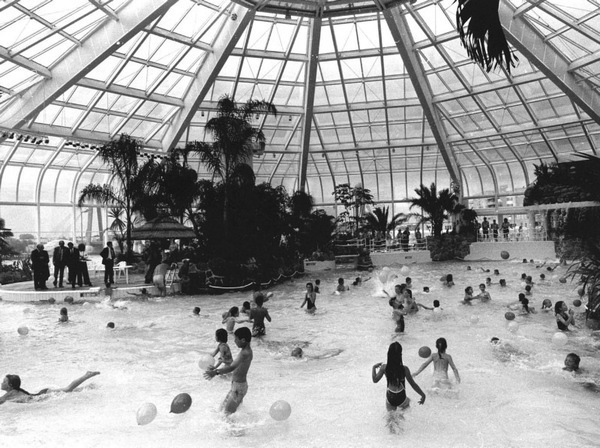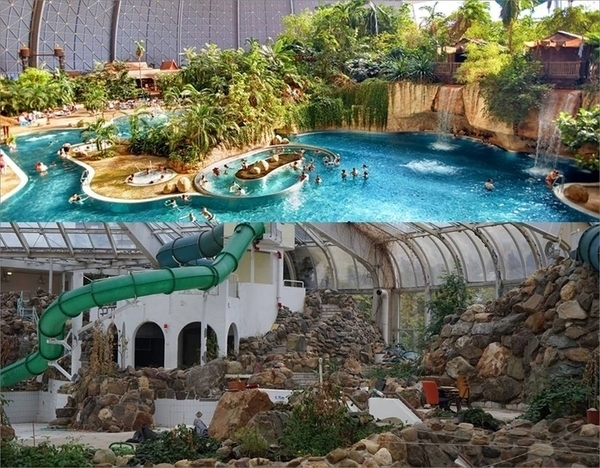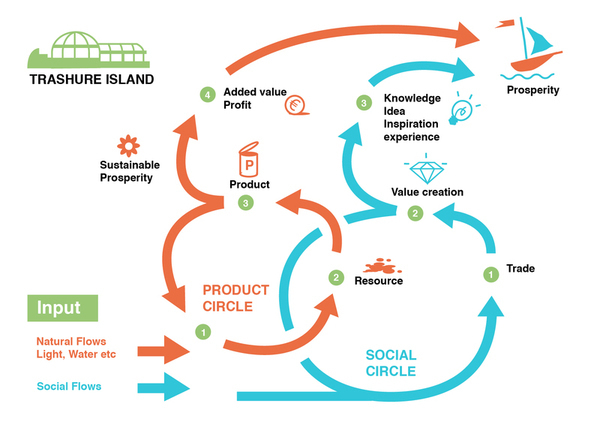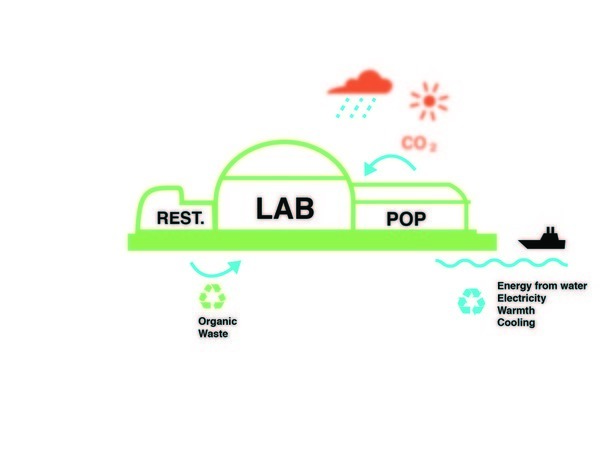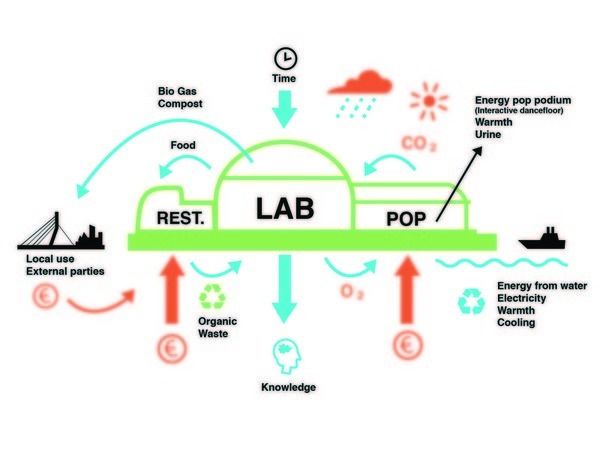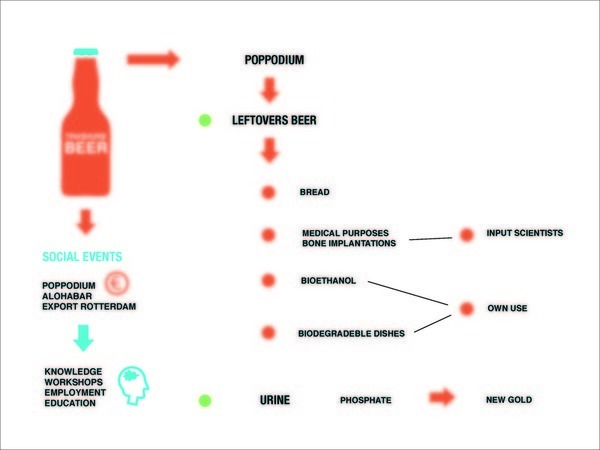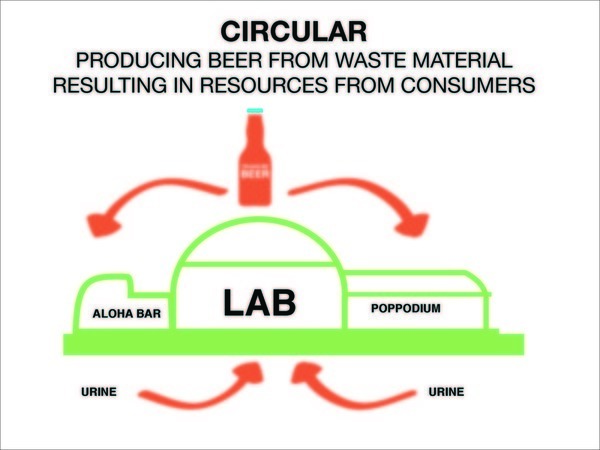Trashure Island - a proposal for a circular economy in Tropicana
Author: Students Masterclass The Circular Economy
Tropicana, from a dream in decay to an opportunity for change?
Over the past century, most cities have become agglomerations of monofunctional districts which are basically disconnected from each other. Residential neighbourhoods, industrial estates, office complexes, farming districts and recreational areas are spatially delimited by administrative boundaries, making it harder to make good use of their mutual presence. The ever-increasing flow of goods, energy, water, food and even capital is disconnected from the location where these are created, contributing to endless transportation, traffic congestion, waste of energy and pollution. In a special masterclass at the WdKA Redesigning Business event (November 2014), an interdisciplinary group of students sought ways to promote the exchange between existing flows by making smart new connections: the main requirement of an ecosystem. The host of this masterclass was Rotterzwam, a local mushroom farming business which grows mushrooms on left-over coffee grounds. We used their business case as a starting point for a proposal in which a former sub-tropical swimming paradise is turned into a centre for innovation: sustainable, connecting and regenerative.
The masterclass took place in Tropicana, an iconic building on the river Maas in Rotterdam that was built in 1988. It was a promise of a tropical experience, a true aquatic paradise. The lack of maintenance and plans to redevelop it into an event centre meant that Tropicana closed its doors in the summer of 2010. Bankruptcy in 2011 meant that the redevelopment never happened and the building became a dream in decay. At the moment though, smaller scale, but maybe more interesting, developments are happening on the site. It now serves as a temporary location for various businesses and has a restaurant and a bar as well as facilities for roasting coffee and farming oyster mushrooms on left-over coffee grounds. Can this landmark become a metaphor for new ways of thinking, sharing, working and relaxing all with an important focus on recycling as well as on research into flows of goods, energy, water, food and even capital? Can we make smart connections between local surpluses, shortages and bottlenecks, thus creating new functions and business cases for Tropicana?
Trashure Island
The city of Rotterdam has high ambitions for sustainability. Why not use Tropicana as a building that represents sustainable development and give the building back its iconic status?! Tropicana could become 'Trashure Island', an island which will share and show sustainable ideas, mainly focussing on how to reuse waste flows. This would create a circular economy. It will be an ecosystem consisting of a lab and a knowledge centre where local people can learn by doing and where innovation and experimentation can take place. This way the mindset of people can change and it will be a new kind of education. This results in BIY: a Blue It Yourself economy. The waste flows of a concert stage, which will soon be added to the building, and the restaurant will also be a part of the circular ecosystem. The building's waste flows and trash and unemployed people become the new gold. Trash becomes treasure. It is an innovative way of creating awareness for sustainability for the people of Rotterdam and eventually for the rest of the world. This way, people can be introduced to the blue economy in an innovative and educative way (further explained in our video & images) and presentation of a case study in which we present Treasure Beer, a new beer brand that could be consumed as well produced in Tropicana (see video advertorial).
The participating students came from: Bouwkunde minor dIB, Minor social practices WdKA and Cultural Economics, Erasmus University Rotterdam.
This masterclass was hosted and guided by Rotterzwam, organised by Floris Schiferli (Superuse Studios Rotterdam) and located in Tropicana, Maasboulevard 100, Rotterdam.
With special thanks to: Mark Slegers & all co-workers of Rotterzwam (host and inspirer), Rechtstreex (for the lovely local lunch), Norbert Bol (Director of Grondmij capital investment), Mark Bode (Business Station WDKA), Hans Huurman (gemeente Rotterdam), Dave Geensen (poppodium Rotterdam).Links
CONTRIBUTE
Feel free to contribute to Beyond Social.
